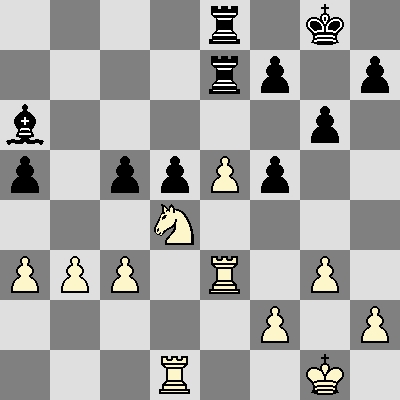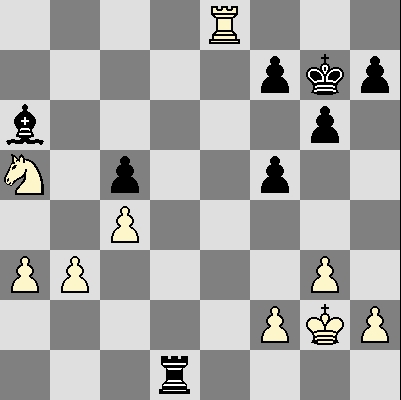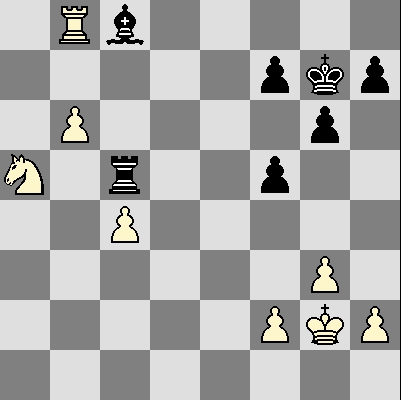
Here with 34.Nc6 white got a won endgame: in fact after 34....Re6 35.Nxa5 Rxe5 white has the nice shot 36.Rxd5! and black is hopeless. After 36....Rxd5 (36....Rxe3 is not better: 37.fxe3 c4! 38.b4 Rxe3 39.a4! traps the black bishop) 37.Rxe8+ Kg7 38.c4!! (a key move in the position) 38.... Rd1+ 39.Kg2 black has to be careful not to lose the bishop: see the diagram below.

Black played the correct 39....Rd7, but after 40.Rb8! (40.b4 is also good of course) Ra7 41.b4 cxb4 42.axb4 Rc7 (otherwise 43.b5 wins the black bishop) there followed 43.b5 Bc8 44.b6! Rc5.
And now what would you play as white in the position below ?

Of course, after 45.b7? Bxb7 46.Nxb7 Rxc4 white still has a winning advantage - a full knight for a pawn - but the game could easily last some thirty more moves, with some faint chance for black to equalize if white did not play precise moves. Instead there is a move (not hard to find, in truth) that immediately "cuts the crap": and that is what I played. 45.Rxc8! I can't really call it an exchange sacrifice, although technically that's what it is... There followed 45... Rxc8 46.b7 Rb8 47.c5 Kf6 48.c6 and black is powerless. Indeed, white promoted the c-pawn unhindered, and gave checkmate on move 57. Quite pleasing for me to play this accurate ending, although not a very hard one to convert to a win.




Comments